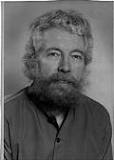John L. Horn
John L. Horn | |
|---|---|
 | |
| Born | 1929 |
| Died | 2006 |
| Occupation | Cognitive psychologist |
John L. Horn (1929–2006) was a scholar, cognitive psychologist and a pioneer in developing theories of multiple intelligence. Dr. Horn, together with Raymond Cattell, developed the crystallized and fluid theory of intelligence. This theory was later combined with the work of John Carroll and called the Cattell–Horn–Carroll theory. The CHC theory is the basis for many modern IQ tests.
Biography
Early life
John L. Horn was born in 1929.
Career
He started his career as a Lecturer of Educational Psychology at the University of California, Berkeley in 1967. He was Associate Professor of Psychology at the University of Denver from 1970 to 1986. Meanwhile, he was also Research Associate at the Institute of Psychiatry of the University of London in England in 1972 and Research Associate of Psychiatric Clinic at the University Hospital in Lund, Sweden 1982. He was then Professor of Psychology & Head of Adult Development and Aging University of Southern California from 1986 to 2006.
He received numerous awards, including: Research Career Development Award, National Institutes of Health (1968–1972); Annual Prize for Distinguished Publications in Multivariate Psychology (SMEP) (1972); Lifetime Achievement Award, SMEP (1992). Horn also served as president of the National Association for the Advancement of Colored People and the American Civil Liberties Union.[1]
Death
He died in 2006.
References
- ^ McArdle, John J. (2007). "John L. Horn (1928-2006)". American Psychologist. 62 (6): 596–7. doi:10.1037/0003-066X.62.6.596. PMID 17874900.
